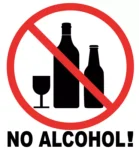
After all, a serving of alcohol is a 12-ounce beer, 5-ounce glass of wine, or 1.5 ounces of hard alcohol.1 Most people have more than that at happy hour or on the weekend. Again, it seems counterintuitive – for a lot of us, drinking seems to help us loosen up and have fun. It slows your body down and changes the chemical makeup in your brain, which can have a major impact on mental health. Consuming on average more than two standard drinks a day can increase your risk of developing how to take a break from drinking mental health conditions, such as anxiety and depression, and interfere with antidepressant medication. Research from 2018 showed that a month-long break from alcohol was enough for moderate-heavy drinkers to see improvements in insulin resistance, blood pressure, body weight, and cancer-related growth factors. Drinking may seem to help you unwind after a stressful day, but there are some suggestions that drinking regularly can make it more difficult to cope with stress.
Better sleep
You could ask for it to be served in a spirit or cocktail glass – you might be less likely to be asked why you’re not drinking. In our alcohol-centric society, it sometimes feels uncomfortable when everyone around you is drinking and your own hands are empty. Choose https://ecosoberhouse.com/article/should-you-have-relationships-in-recovery/ a healthier alternative like sparkling water, soft drink or a mocktail. It’s also a good way to communicate to your friends your choice to quit drinking, so they can better support you. Having a friend also take up the challenge can make it a little easier.
Long-Term Benefits of Quitting Alcohol
Essentially, feeling “drunk” is when your liver becomes too overwhelmed to properly process alcohol, so it overflows temporarily into your bloodstream. This is what causes you to feel light-headed or tipsy after multiple alcoholic drinks. This sober curious movement is relatively new, and scientists are just beginning to study the health effects of taking a short break from alcohol. Here’s NPR’s Allison Aubrey with what researchers have learned so far. Occasionally, decisions need to be made about the use of alcohol.
Common Withdrawal Symptoms
“I suppose [it was a] growing intolerance and needing more than two glasses to feel the warm and fuzzies.” Your body has acclimated to quitting drinking over the past couple of years. Do you have friends you only spend time with when you’re drinking? Try spending some alcohol-free time together and you may be surprised by the more meaningful levels of interaction you can reach. Instead of meeting for a drink, why not organise a walk followed by a healthy breakfast, or perhaps a trip to the beach or a museum? Spending quiet and peaceful time with the people in your life can be a nice break if you’re used to shouting at each other over the noise of the pub.
- And the benefits of sobriety might be years, not months, down the road.
- Consider trading in liquid courage for natural courage and find refreshed energy while pausing on alcohol.
- Taking the focus off alcohol can give you new experiences that do not involve drinking.
- While the abstinence stage of withdrawal causes mostly physical symptoms, post-acute withdrawal is very psychological and emotional.
- Having a drink at night might make you feel relaxed and sleepy – but once you nod off, alcohol actually interferes with your sleep cycle, resulting in poorer quality of sleep.
What are the long-term health benefits of not drinking alcohol?
About 90% of heavy drinkers will develop alcoholic liver disease, while 20–40% will develop alcoholic hepatitis, which occurs when the liver becomes damaged and inflamed. “A short-term break from alcohol will allow the liver cells to recover from the persistent toxic injury from the alcohol,” Larson said. If you stop drinking for a week, you might notice some positive changes in your gastrointestinal system.

The 4 Stages of Alcohol Recovery: A Path to Healing
Take note of your mental health

Your Health
- Events like FebFast can encourage and support these good intentions.
- So, now is as good a time as any to try the sober-curious lifestyle.
- Waking up without the fatigue, malaise and other common symptoms of hangovers could greatly improve one’s quality of life.
- Instead of meeting for a drink, why not organise a walk followed by a healthy breakfast, or perhaps a trip to the beach or a museum?
- So far, there’s no consensus on the medical definition of recovery in alcohol treatment literature.
